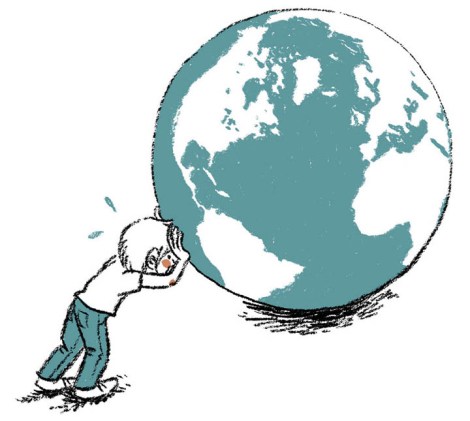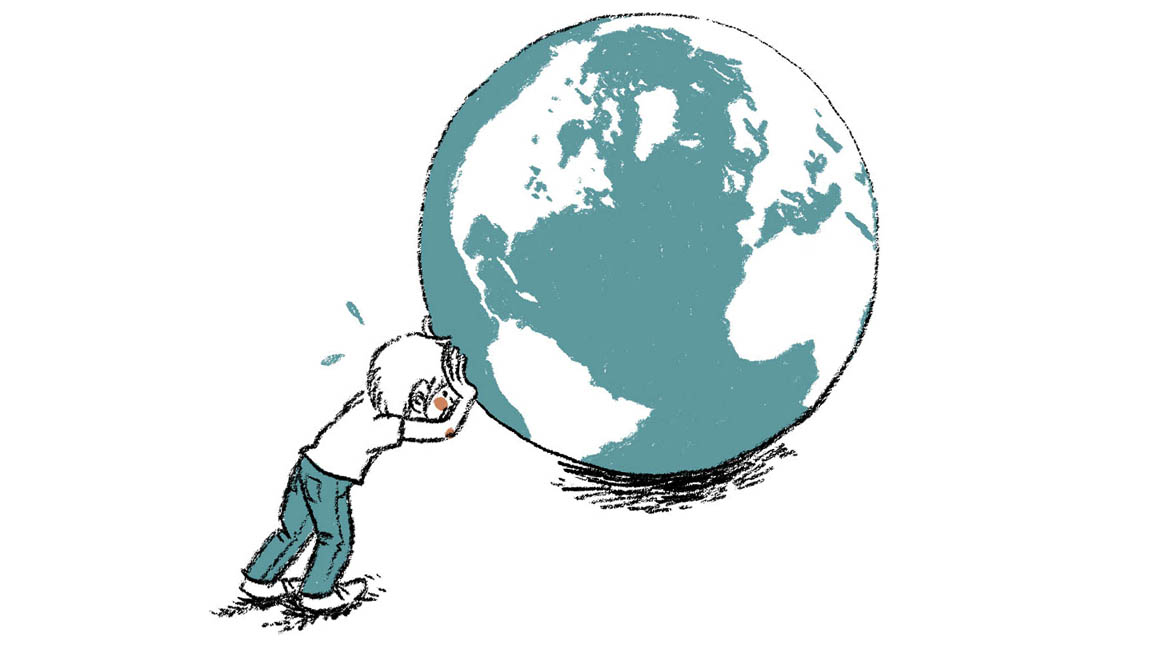I have a confession: I have a confession: I�

Susie Cagle
I’m not alone. Just ask Greg Sharzer, a frustrated Marxist activist with a PhD in Political Science from York University who also enjoys cycling and Fair Trade coffee. Sharzer’s book No Local: Why Small-Scale Alternatives Won’t Change the World is a bucket of ice water on fresh-faced progressive localism, and an affront to the concept of micro solutions altogether. Localism is a survival strategy, Sharzer writes, not a movement, and not a solution.
Localism says we can change how we act within capitalism. If consumers don’t like a commodity, they can demonstrate their commitment to a better one. Choose to support ethical, small-scale businesses, and little by little the excesses of economic growth will disappear. Community gardening, farmers’ markets, and biodiesel cooperatives will change the entrenched power of agribusiness, for example.
For Sharzer, progressive localism and small acts come from a place of “deep pessimism,” a sense that the problems are just too big to tackle. He criticizes lifestyle localism for seeking to model behavior for others while not confronting the powers that made us all oil-addicts in the first place.
It’s not that micro solutions are wrong, per se. It’s just that they aren’t solutions. Buying local organic veggies — or better yet, growing your own — is great, but it’s not a replacement for fighting for the rights of the people who pick the fields for 10 cents per head of lettuce.
Sharzer relies on Marxist class analysis to make his arguments that localism fails to bring about systemic change. I will spare you the Marxism (you’re welcome!) but not the class war. He basically argues that if localists “understood” capitalism (scare quotes necessary), they’d be in the streets with torches and pitchforks, not out scavenging used veggie oil to power their Jettas. He is lobbying for us to think and act collectively, globally, instead of just focusing on ourselves.
Not everyone read No Local the way I did. From a piece in Post Carbon Living:
[Sharzer] misses the point. [Localism] succeeds because it doesn’t challenge capital. Its purpose is not to challenge capital. It isn’t an ideology in that sense. It isn’t born of dogma, it is a practical solution to real-world problems. Those problems have been around since the dawn of industrialization. They are as old as Marxist theory. But, as Marx could only offer theory, localism offered pragmatism.
I’d replace pragmatism here with “something do-able.” It’s not that localism is a practical solution to crisis: It’s that it’s better than nothing. But though I can understand the appeal, it feels absurd to respond to climate change, for instance, by riding bikes, not demanding high-level political and economic change.
Which brings me to this: If below these homespun solutions there is a deep pessimism, where is the optimism?
It’s worth noting that Sharzer’s book came out last spring, a few months before more than 1,000 people were arrested protesting the Keystone XL pipeline at the White House. The pipeline has helped catalyze an organized climate movement — one full of micro and macro thinkers alike, who are looking far beyond the Keystone XL.
Sharzer’s book also came out six days before activists illegally took over a tract of land in Albany, Calif., that was set to be developed, and instead planted a farm. Though the Occupy farmers were expelled and the land locked up, the development was slowed, and some of the backers pulled out permanently. It was a small fight for a small piece of land, a local response to a global problem, but those farmers were also attempting to create slightly greater-than-micro solutions, and their fight has had lasting results.
What we see in the Keystone protests and the Occupy movement is not a Marxist revolution. (I don’t think we’ll ever have one, Sharzer, but if you hear of something brewing please call me.) It is, however, a radical energy — an optimistic energy.
Sharzer, too, recognizes the ability of small-scale actions to beget bigger things. “As part of the struggle to gain power, activists create political counter-institutions to deal directly with community problems,” he writes. “This is a first, and only the first, step on the road to dual power.”
Many localist efforts are indeed valiant. And damn, those local veggies are tasty. But let’s have no illusions about the real impact of our local diets. If we’re too obsessed with policing our dinner plates, we may overlook much larger evils.
Micro solutions aren’t meaningless, and little acts can and do add up. But they only serve a greater purpose if they keep us primed for the bigger fights.
I empathize with Greg Sharzer’s frustrations. But I also feel hope. The micro solutions may not be enough, but if they serve as an entry point to a deeper analysis and greater engagement — if they help feed a movement — that could be pretty damn macro.




